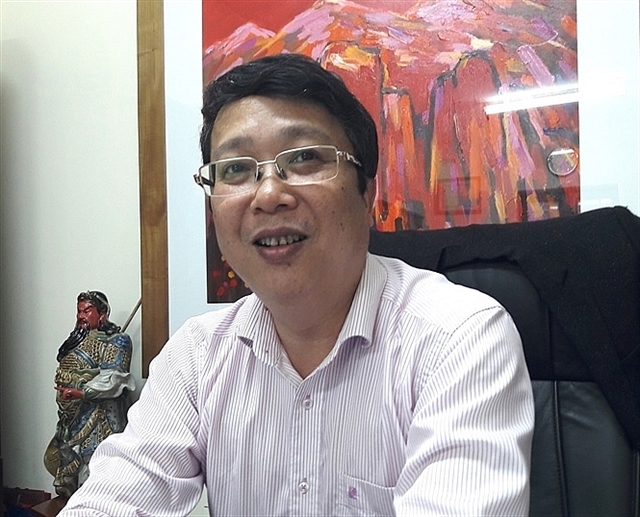.jfif) Opinion
Opinion


|
Nguyễn Hoàng Trung, director general for the Department for Plant Protection, in the Ministry of Agriculture and Rural Development, talks to Hải Quan online about the bright future for Việt Nam’s platostoma palustre plant in the Chinese market. Black jelly is made from the leaves of the platostoma palustre plant, commonly known as Chinese mesona.
What has Việt Nam done to speed up the export of platostoma palustre plant to China?
In the context of the COVID-19 pandemic, with guidance from the Ministry of Agriculture and Rural Development, all concerned Vietnamese agencies have continued to complete their paperwork on the export of platostoma palustre plan to China in accordance with technical agreements which have been agreed between the Vietnamese and Chinese agencies. Basically speaking all required technical dossiers on the quality of the Vietnamese platostoma palustre plant have been completed.
However, due to the COVID-19 pandemic, the two countries could not arrange a direct negotiation prior to the signing of the agreement. Việt Nam has requested China to arrange a meeting between the two countries so that Việt Nam could export its black jelly to China as soon as possible. At the beginning, China agreed to have the agreement signed through the diplomatic channel. Yet, a few days later, China again asked Việt Nam to have the agreement signed online. And, in its response, Việt Nam agreed to have the agreement signed online to speed up the process of exporting platostoma palustre plant to China through an official channel.
What are the benefits Việt Nam will enjoy from the signing of the protocol to export platostoma palustre plant to China?
Before the signing of the protocol, China sent a few delegations to Việt Nam, particularly to the Lạng Sơn border province to directly check the quality of Vietnamese platostoma palustre plant, ranging from the production chains to packaging and preservation activities.
At present, Lạng Sơn is the only Vietnamese province planting more than 2,000 hectares of platostoma palustre plant with an output of over 10,000 tones per year. It is reported that farmers in the province earn between VNĐ200-250 billion per annum ($). Besides Lạng Sơn Province, farmers in other provinces like Cao Bằng also grow black jelly plants. Hopefully, the livelihoods of Vietnamese platostoma palustre plant farmers will improve if they can export more black jelly to China.
It is reported that Việt Nam will soon sign a protocol to export durian and sweet potatoes to China. Can you tell us about that plan?
Việt Nam has a lot of potential in the production of durian and sweet potatoes. These two products have gained a high reputation in China. But they were exported to China only through unofficial channels – the cross-border trade. If Việt Nam wants to export these two products through official border trade, it must abide by international norms and practices.
We hope the paperwork regarding the export of Vietnamese durian and sweet potatoes to China will be completed before an official signing of a protocol to export them to China.
To speed up this process, Việt Nam has asked China to send a group of experts to Việt Nam to make site visits to see how durian and sweet potatoes are grown in Việt Nam and how they are packaged.
We have proposed that Vietnamese and Chinese Phyto Sanitary Inspection agencies work online on how the procedures should be done so that the Vietnamese durian and sweet potatoes will be available in all Chinese shops or supermarkets.
We hope our proposal will be accepted and an official protocol on the export of durian and sweet potatoes will be signed soon. And these products will be placed in supermarkets for Chinese customers._VNS




